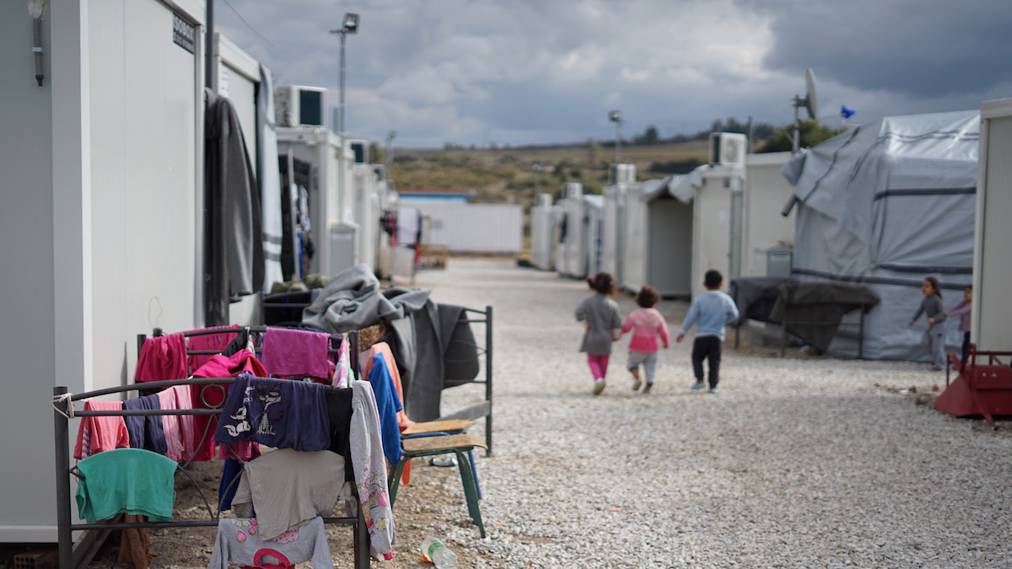
Launch of the EuroWARCHILD Project
Children born of war (CBOW) are in most cases children born to local mothers and fathered by enemy soldiers during and after armed conflict.
They can be conceived through both conflict-related sexual violence (CRSV) and consensual relationships, including love relationships. Children have been 'born of war' in nearly every war and conflict around the world throughout history.
This project launch will bring together European children born of war, scholars, and practitioners to discuss what it means to grow up as a child born of war. This is one of the core questions that the new and comprehensive European Children Born of War (EuroWARCHILD) project aims to answer.
EuroWARCHILD is the first research project to examine different groups of war children in the European context, across conflicts, security settings and generations. The focus of the project will be on children born of war in Norway, Denmark, Germany and Bosnia and Herzegovina, with additional studies that focus on Kosovo, Sierra Leone, Yezidi children and children born by European foreign fighters to ISIS/Daesh.
Traditionally, children born of war have been vulnerable and forgotten populations, whose lives and needs we know far too little about. This is slowly changing. These children are now making themselves heard in many post-conflict settings. There is also an increased interest in the plight of these children within research as well as in international political and humanitarian efforts.
Programme
09:30 - 09:45 Registration & coffee
Session 1 - Welcome and introduction of the project
09:45 - 09:50 Welcome speech by PRIO Director Henrik Urdal.
09:50 - 10:05 Introduction of the EuroWARCHILD project by project leader, Professor Inger Skjelsbæk (University of Oslo and PRIO). Shortpresentations of two EuroWARCHILD PhD-projectsby Johanne Rokke Elvebakken and LinaStotz.
Session 2 - Keynote address w/comments
Chair: Director of the PRIO Centre on Gender, Peace and Security, Senior Researcher Torunn L. Tryggestad.
10:05 - 10:25 Video keynote address by Special Representative of the Secretary-General on Sexual Violence in Conflict, Under-Secretary-General Pramila Patten.
10:25 - 10:50 Comments and reflections
- Norwegian Ministry of Foreign Affairs, represented by Cathrine Andersen, Special Representative for Protection of Civilians, Section for Humanitarian Affairs. Norway is currently chairing the Security Council Working Group on Children and Armed Conflict. How is the topic of children born of war addressed through this work?
- Gunvor Knag Fylkesnes, Advocacy and Communication Director, Save the Children Norway.
10:50 - 11:00 Coffee break
Session 3 - Panel discussion: What does it mean to be a child born of war?
11:00 - 12:00
Chair: Professor Ingvill Constanze Mochmann, GESIS-Leibniz Institute for the Social Sciences, Germany and University of Oslo.
Panelists: Winfried Behlau (Germany), Elna Johnsen (Norway), Lejla Damon (Bosnia and Herzegovina), Norman Mukasa (Uganda).
Core questions for the panel discussion:
- What does it mean to grow up as a child born of war?
- Which are the most basic rights that need to be ensured for children born of war?
- How can societies best care for children born of war after conflicts end?
12:00 - 12:25 Q & A
12:25 - 12:30 S ummary by Professor Inger Skjelsbæk
About the panelists
Winfried Behlau was born in April 1946 near Allenstein (in today's Poland). His mother suffered a rape and had a failed abortion. His mother fled to West Germany, where Winfried grew up not knowing that he was a child born of war until the age of 13. He kept his secret for more than 50 years until he became one of the founders of the "Thistle Flower" organization for those fathered by a Red Army soldier. Behlau works as a mathematics and physics teacher.
Lejla Damon is a child born out of war in the Bosnian War that started in 1992. She was adopted by two British journalists who brought her back to the UK. She was 19 when she began her activism and has been working with many different NGO's (War Child, FCDO and Forgotten Children of War Association) to highlight the issues around sexual violence that women and their children face. She currently lives in Manchester (UK) but regularly goes back to Bosnia as she after 23 years made a connection with her birth mother, and they started on a journey of building a relationship together.
Elna Johnsen was born August 1943 in a home for women pregnant by German soldiers and given the name Gisela. She was adopted and her name was changed to Elna Marit. In 1986 her biological mother called and told her she was her mother and that her father was a German soldier. That phone-call changed her life. Elna has been an active board member of the Norwegian War Child Association (NKBF) and the War and Children Identity project (WCIP).
Dr. Norman Mukasa is an International and Intercultural Studies scholar affiliated with Muteesa I Royal University (MRU) and Bugema University (BU) in Uganda. He is currently a visiting scholar at the GESIS-Leibniz Institute for Social Sciences in Cologne. His research interests include topics linked to peace and conflict transformation – particularly children born of war, gender issues and social inequality. Mukasa is a member of the International Network for Interdisciplinary Research on Children Born of War (INIRC-CBOW), among other academic networks, and a board member of the Children Born of War project.
The European Children Born of War (EuroWARCHILD) project
The European Children Born of War (EuroWARCHILD) project aims to explore the experiences and needs of three generations of children born of war in Europe: children fathered by enemy soldiers during World War II, children conceived through conflict-related sexual violence during the Bosnian war, and children born of European foreign fighters to ISIS/Daesh.
The project is hosted by the Centre of Gender Research (STK) at the University of Oslo, with the PRIO Centre on Gender, Peace and Security (PRIO GPS) as a collaborative partner. The project is funded through a Consolidator Grant of the European Research Council (ERC) from 2021-2026.





